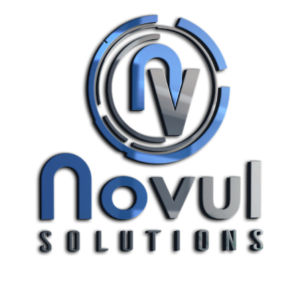Subtotal $0.00
Essential Interview Questions to Hire the Best Risk Management Framework (RMF) Professionals
In today’s fast-paced business environment, companies are continuously grappling with a myriad of risks, making it imperative to hire Risk Management Framework (RMF) professionals who can successfully handle the diverse range of risk scenarios. These professionals play a pivotal role in guiding the organization through potential risk avenues while ensuring strategic goals are met. But what questions should you ask to ensure you’re hiring the best RMF professional for your organization?
Can you briefly explain what a Risk Management Framework is and why it’s important in an organization?
This fundamental question helps assess a candidate’s basic understanding of RMF and its relevance within an organization. They should highlight how an RMF provides a structured process for risk identification, assessment, response, and monitoring, enabling companies to better manage potential threats and take informed decisions.
Describe your experience with creating and implementing RMFs.
Understanding the candidate’s prior experience with RMFs can provide insight into their practical skills and abilities. Their response should emphasize experience in identifying risks, developing risk response strategies, and monitoring risk.
How do you identify and assess potential risks?
The answer to this question should outline the candidate’s approach to risk identification and assessment. They should talk about methods like SWOT analysis, PESTLE analysis, or other risk assessment frameworks that they have used to identify and evaluate risks.
Can you describe a time when your RMF identified a significant risk that was not initially apparent?
This question probes the candidate’s capacity to uncover hidden risks and their ability to act on them effectively. It can provide insight into their analytical skills and experience dealing with complex risk scenarios.

How do you prioritize risks and decide on the appropriate response strategies?
This question allows the candidate to showcase their decision-making and strategic planning skills. They should explain how they apply concepts like risk appetite, risk severity, and risk probability to prioritize risks and devise appropriate response strategies.
How do you ensure the RMF stays current with changing business environments and regulations?
The candidate’s response to this question should highlight their awareness of the dynamic nature of business environments and regulatory landscapes. They should stress the importance of continuous monitoring, review, and updates to the RMF to ensure its effectiveness over time.
What tools and technologies do you use for risk management and why?
The answer to this question will provide a glimpse into the candidate’s familiarity with contemporary risk management tools and technologies, which are vital in today’s data-driven environment. They should detail their experience with risk management software, databases, and possibly even AI and machine learning applications in risk management.
Can you provide an example of a risk that was not managed well and the lessons learned from it?
This question allows candidates to demonstrate their capacity for learning and improvement. They should highlight a scenario where risk management fell short, followed by the steps they took to rectify the situation and the lessons learned to prevent a recurrence.

What steps do you take to communicate potential risks to stakeholders?
Risk communication is crucial in RMF, and this question lets the candidate showcase their communication skills. They should talk about their strategies for transparent and effective risk communication, such as reports, presentations, meetings, or technology platforms.
What are the biggest challenges in risk management today, and how would you approach them?
This question challenges candidates to display their understanding of the current risk landscape and their problem-solving abilities. They should detail contemporary challenges such as cyber risk, geopolitical risk, or regulatory changes and then articulate how they would approach these issues.
In conclusion, when hiring RMF professionals, the aim should not just be to fill a vacant position but to bring on board a team member who can enhance the organization’s resilience and sustainability. By posing the right questions, you can gain a deeper understanding of a candidate’s competency, expertise, and approach to risk management, ensuring they’re equipped to navigate the complexities of today’s dynamic risk landscape.
Remember, an effective RMF professional is not just well-versed in theoretical knowledge but also displays practical wisdom, strong communication skills, and the adaptability to manage risks in a rapidly evolving business environment. So, don’t rush the process – take your time, ask the right questions, and you will be well on your way to securing a proficient RMF professional who can add significant value to your organization’s risk management initiatives.


Comments are closed